
Healthy Individuals & Communities
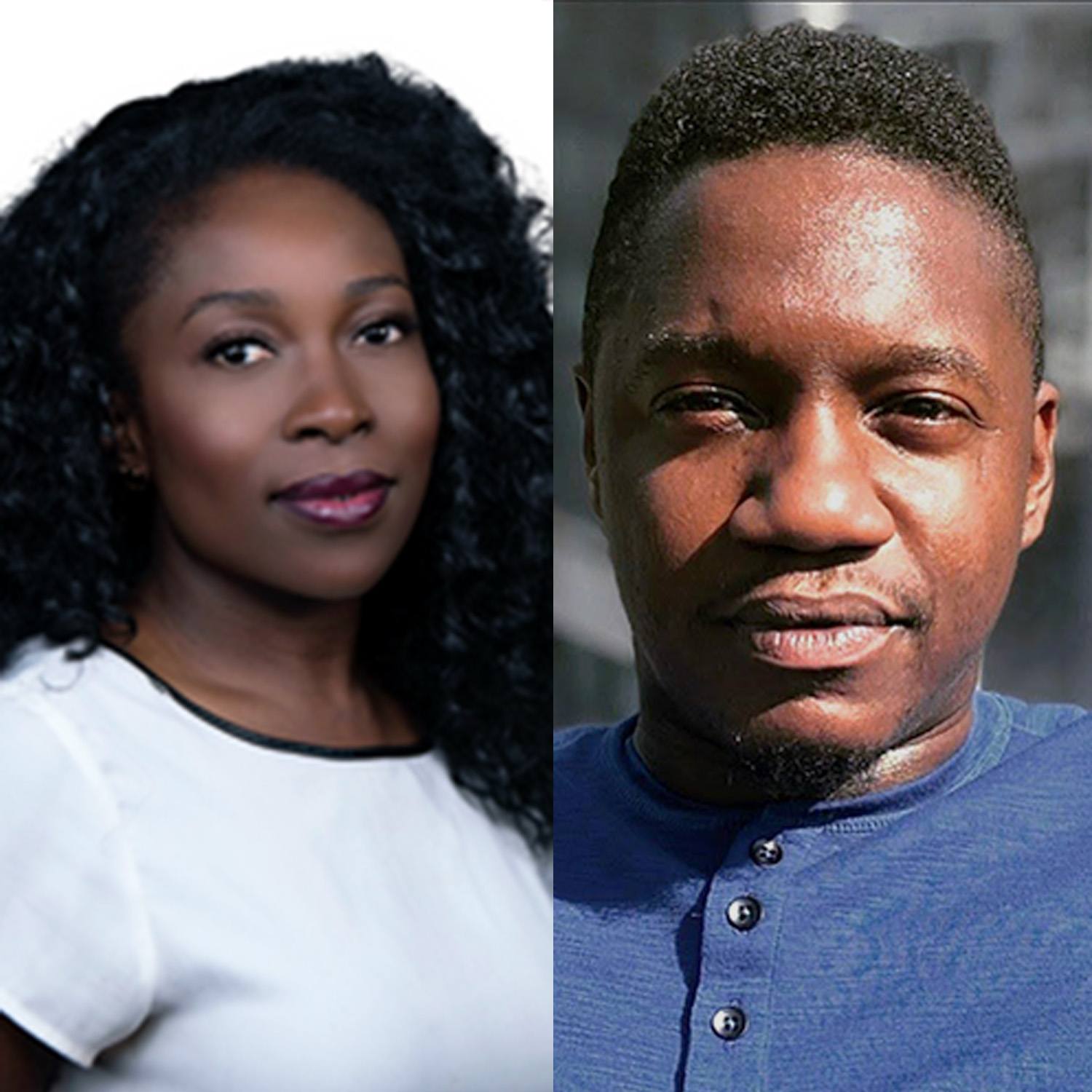
White founders have access to 37 times more wealth from startup financing than Black founders. This sobering fact is just one reason why Stella Ashaolu, co-founder of Fifth Star Funds, a philanthropic fund of the Tides Foundation, decided that investing in early stage Black founders is critical to help close the wealth gap in America. Ashaolu, along with her Fifth Star colleagues and partners, aims to move the needle on how capital is disbursed, particularly during the critical friends and family round, a make-or-break point in many entrepreneurs’ success. As Black entrepreneurs continue to face historically significant material barriers to capital, Fifth Star Funds is playing a defining role in equalizing opportunities for Black business founders.
In this interview, Tides Advisor Kate Dinota speaks with Ashaolu and Dameon Mason, founder of Crtside and investee of Fifth Star Funds. We’ll hear about Ashaolu’s journey to co-founding Fifth Star Funds, why she felt the need to equalize the racial imbalance in tech companies, and what she envisions for Fifth Star Funds. We’ll also hear from Mason on how Fifth Star Funds was vital in bringing to life Crtside, a sports-based social network and basketball event production company, and what it means to turn a great idea into a business reality.
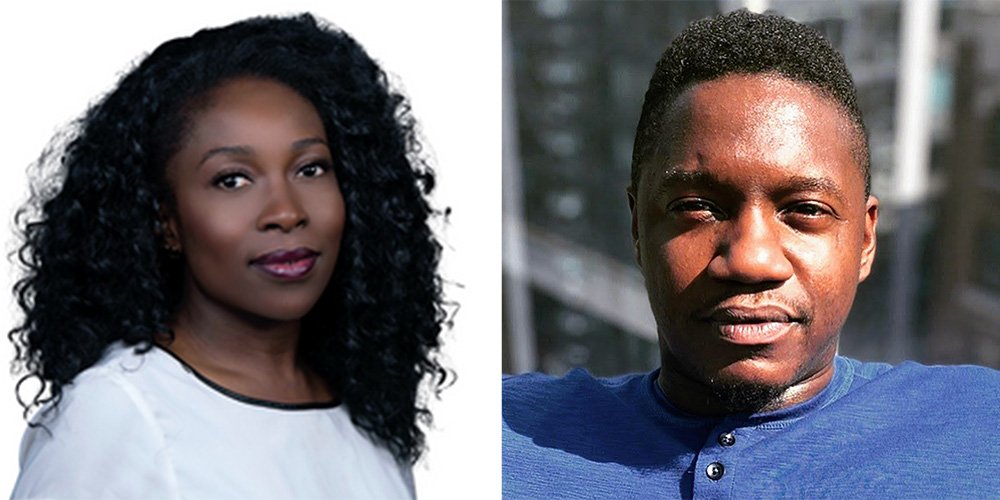
Stella Ashaolu, co-founder of Fifth Star Funds (left) and Dameon Mason, founder of Crtside and investee of Fifth Star Funds (right)
Stella, can you tell us a little bit about your journey to founding Fifth Star Funds? What challenge did you see, and what problem are you aiming to solve through this work?
Stella Ashaolu: Yeah, definitely. The journey to founding Fifth Star wasn’t what I expected it would be in the sense I was, or am, an active founder of a company called WeSolv, which is a platform that connects enterprise organizations to more diverse candidates and uses performance data from real projects to help them identify the best hires and reduce bias in their hiring process. Through building that company, I have experienced a lot of challenges, but have also been blessed to get connected to incubators like 1871, or be accepted and participate in Techstars, and really grow the work we’re doing with company partners like Salesforce or Discover or Pinterest.
Really quickly I realized that my experience didn’t match a lot of my peers. As I continued to grow and build WeSolv, I wanted to connect with other founders. Through 1871, I connected with a group of founders at similar growth stages and we would meet weekly to talk about strategy, marketing, et cetera. Once the pandemic started in 2020, even though the program ended, we decided to still meet to be that support. As we all know, the summer of 2020 was riddled with a lot of incidents that brought a social or racial reckoning, as some call it here in the US. That fateful day after the unfortunate murder of George Floyd, this group was together and we were discussing business as usual, marketing strategy, et cetera, but I was just not well, given the events of the week. I openly shared to the group how I was feeling and the challenges that I was facing.
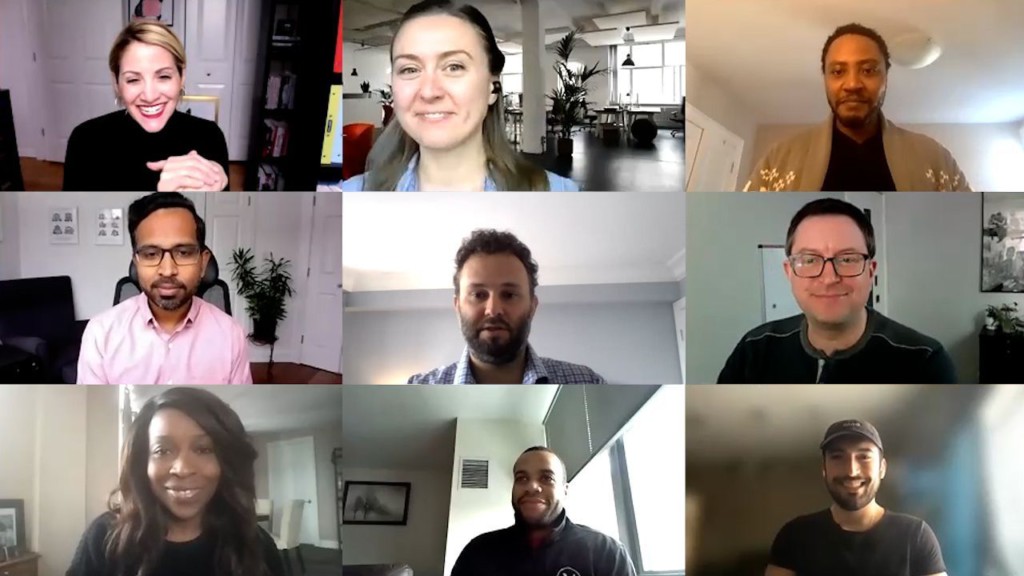
“[Fifth Star Funds] came out of love of a team talking about a really complex challenge and wanting to create a unique solution specifically addressing the wealth gap for Black founders in tech.” // Image of Fifth Star Funds Cofounders (Photo © FSF)
Can you tell us a little bit about what Fifth Star Funds is and what your mission is?
Stella Ashaolu: Yes, definitely. Fifth Star Funds is a philanthropic fund that invests in early stage Black founders. When we say early stage, we’re talking about the stage that has traditionally been called or known as the friends and family round, which is specifically focused on not only providing capital or access to capital to these founders based on an objective and less biased model of assessing and distributing capital, but also providing the unique resources and support that we know Black founders need in light of the circumstances, inequality, and just the unique challenges that they will face as founders. I guess, to also add on to that piece around our model of being a philanthropic fund, what that means is that anyone can contribute a tax deductible donation to Fifth Star Funds, and we then invest it in a traditional manner, using a safe at the moment but traditional equity investment into a company. Any returns that are generated from these investments go back into the fund to then fund other founders, creating an evergreen model that will continue to fund and support Black founders for time to come.
The work at Fifth Star is instrumental in addressing the racial wealth gap in America with respect to startup financing. Something that stuck out to me on your website was how White families have seven times more wealth than Black families, which means White-led businesses have access to 37 times more startup financing. Can you speak to that challenge? How does that drive the mission at Fifth Star?
Stella Ashaolu: Yeah, definitely. It’s years and years of systemic and historical inequity, racism, that has led us to this place. It’s a known fact that capital is needed to build and start businesses. For us, when we were thinking about where is the biggest gap for folks who are trying to build businesses and particularly Black founders, we felt that it was at that earlier stage, what is traditionally known as the friends and family round where people may not even have a product or have generated revenue but it’s those early people in their networks that believe in them, that give them the capital and the ability to go and chase after that dream and that opportunity. We wanted to really focus our efforts there where we feel like we can create the most impact to hopefully fill the funnel with more Black founders even just having the opportunity, even though we know that there’s challenges and struggle and bias throughout the whole process, but this is where we felt that we could have the most impact.
Fifth Star Funds has invested in Dameon and his company, Crtside. Dameon, can you tell us a bit about Crtside, why you founded it? Then I’d really love to hear about how the friends and family round from Fifth Star Funds impacted you. Why is that round so important to entrepreneurs like you?
Dameon Mason: We were founded in 2020. We’re a sports-based social network with creatives within the basketball ecosystem so we can help them monetize their media content, likeness, and earn revenue. We’re also a basketball event production company as well, which will be live-streaming events from the platform that we provide for these athletes. I think our goal with the company is we want to build a credible space where users could discover, network, and expose their brands to a larger audience, and they can also monetize their media content.
To get that capital at the beginning when it’s just an idea and it’s just love, you’ve got to be able to go to people who can see your vision and invest in you before you get the company up and rolling.
We’re in just a completely different day when it comes to sports now, with name, image, and likeness being a new thing where college and high school athletes can now make money off their name, image, and likeness. What’s going to be important for them is to build their brands and to be able to understand what they need to have on their platforms in order to excel. We wanted to provide those baseline tools to help them build their brands and then provide a network.
To your second question, the family and friends round, just from experience, just to get your business started, going off what Stella said, you need the startup capital just for basic things, just to get the company up and rolling and registered and just to get small things like trademarks and your website done and get your idea rolling.
Our experience has been that it’s been pretty difficult to get that because of that wealth gap that Stella spoke of before. That friends and family network, normally in the Black community you don’t have access to a lot of funds that you would need to start off that network. It’s a lot harder to get the couple of thousand for your website, the few for this, the money for this, the money for that. All the things you need in today’s modern world to run a business costs money. To get that capital at the beginning when it’s just an idea and it’s just love, you’ve got to be able to go to people who can see your vision and invest in you before you get the company up and rolling. That’s where Black and Brown founders normally find their biggest problems, at the beginning. Fifth Star definitely came in and helped us with that, which we’re so appreciative of them and the partnership we’ve been able to forge.
When we first started Crtside, we were so far behind in how we thought about business in general, just because we didn’t have access to different entrepreneurs or business owners or people within that space who could sit us down and walk us through the process of how you want to be doing things in the modern age.
And I’m not saying that we don’t have access to them, a lot of people just don’t know they’re there. That’s one. Then two, when you get access to them, when you know them, the funds that you need to be able to do the things that you need to do to build your business, I mean, like I said, it’s harder to get that friends and family round when there’s such a wealth gap. A lot of people who you want to go to for your idea, friends and family, close people around you, the money they’re using is for their day-to-day. They don’t have expendable income, disposable income that they can take and say, “OK, we’re able to put this aside to help you build your business.”.
Stella Ashaolu: I can also add to that a little bit, specifically about the challenges that Black founders have when they’re raising. Dameon hit it right on. Sometimes not even knowing what is out there and understanding this world as far as how you go about raising capital, what are the things that investors are expecting to see? How do you even structure and build your business? We haven’t always had access to people who are doing that. The other challenge is that the world of investment is a very networked world. If you don’t know investors, if you don’t have people in your network that can introduce you to high net worth individuals who already have some faith or connection to you, it makes it that much harder. I think that’s a big issue when it comes to how Black founders are struggling in finding access to capital.
How have you seen this trend change or evolve over time in the venture capital community, Stella? Do you think that there’s an understanding and knowledge of the wealth gap and this issue? How are you experiencing that in your field?
Stella Ashaolu: Yeah, definitely. I think there’s been more awareness. There’s a lot more content, literature, attention being put on the lack of access to capital, the wealth gap being one of the reasons. I think where unfortunately there isn’t a lot of change is the actual dollars being allocated to Black founders relative to how many dollars are being allocated to founders in general. I think part of the challenge there is that, while folks understand there’s a problem, I don’t think that everyone fully grasps or understands the root issues and why this challenge persists and what to do about it. We’re not just talking about something that, with the flip of a switch or an easy change, is going to solve this problem.
There isn’t a lot of change [in] the actual dollars being allocated to Black founders relative to how many dollars are being allocated to founders in general.
There’s so many different variables, so many different people, so many different things that go into the reasons why Black founders have access to capital, and no one person can solve it on their own. I think it’s going to take a very intentional and conscious effort for folks to look at what they’re doing and to make changes, as opposed to just talking about it. We’re seeing a lot more attention, which is great, but what Fifth Star is looking to do is actually move the needle based on how we are going about disbursing capital.
I think it’s a good segue here to talk about the intersection of corporate social impact and the work that you’re doing at Fifth Star. Congratulations on a recent investment from Salesforce. We learned that Salesforce made a large investment in Fifth Star Funds, which is great for your mission. I’d love if you could talk to us more about that partnership. How should corporate impact teams think about a potential partnership with the fund?
Stella Ashaolu: Yeah, definitely. We’re definitely excited about partnering with Salesforce and them believing in what we’re doing and investing in us. I believe that really came about with their interest in new and upcoming solutions. Fifth Star, we just started a year ago and a lot of folks don’t know about us, but what’s really great is that Salesforce decided to take an intentional approach to what are solutions that are out there, that are new and innovative that they could get behind. I think that’s a really big reason as to why they partnered with us. I also think that’s something that a lot of these corporate social responsibility foundations or organizations can really think about. While there are those incumbents and organizations that have been doing a lot of great work, how do we think about adding innovation and creating new solutions that are tackling some of these pressing challenges? That’s what we’re really excited about and who we’re looking to connect with, those types of organizations that are looking for innovation and new models.
That’s great. Do you see yourselves as a channel through which corporations can invest in Black founders? Do you see yourself as an impact maximizer for corporate partnerships or corporate dollars?
Stella Ashaolu: 100%. We are a philanthropic fund. When what we call a UP, an unlimited partner, contributes to Fifth Star, they’re not going to see returns in the traditional sense, as far as getting any type of distribution later. What ends up happening is we’re able to invest any returns from our companies back into our fund, creating an evergreen model. We are taking a unique approach to this challenge that allows these organizations to really be at the forefront of moving the needle when it comes to providing more access to capital for Black founders. Another way that we think we can support these organizations is we’re really tapped into a channel of innovative entrepreneurs who are solving really big and really important problems by investing or contributing to Fifth Star Funds. They’re getting direct access to not only be able to support and change the narrative around access to capital to Black founders, but they’re getting an opportunity to be in close proximity with change makers and innovative founders who are creating solutions that can be valuable to businesses across the board.
Zooming out a bit here but staying on the CSI theme, why is it important for corporations to understand this challenge and what do you see as the role of corporations in bridging the wealth gap and bridging the gap in access to philanthropy or venture capital?
Stella Ashaolu: As far as their role, I mean, I think it’s everybody’s role, but I think corporations have a really big opportunity just by the sheer amount of capital that flows through these organizations. I think it’s their role as much as it is any investor’s role, or lawmakers, politicians, they have a really big opportunity to change the way they’re thinking about who they partner with and creating impact that others will follow. I think for organizations, for large corporations that contribute to this space and that really think about philanthropic giving and philanthropy in a way that creates sustainable change, I think that is their opportunity to really leverage the same principles and thought processes that we bring into business. How do we create more value? How do we create sustainable value? How do we grow? I think corporations have an opportunity to set the stage and lead the way as far as the way folks think about philanthropy, and it not just being giving dollars away for the sake of giving dollars away, but really creating sustainable change and impact.
Dameon, can you share more about how that friends and family round has impacted your business at Crtside and just your life as an entrepreneur?
Dameon Mason: As the business, the biggest thing we needed to do was to be able to put more time into building the business. There’s three of us as founders: myself, Brandon Smith, and Aaron Green. We all work. I think the biggest piece that it helped with is being able to take one of our co-founders, Brandon, make him full-time just to work on Crtside so he can concentrate on a number of different day-to-day things that we need to get taken care of, and then update us in the evening, and I can play my part and Aaron can play his part in building the business. That truly helped because we were calling each other on lunch breaks and spending 30 minutes here, 15 minutes there, talking all night, two, three o’clock in the morning, waking up, getting our kids ready for school, and going back to work again.
Then secondly, it’s enabled us to finish our beta for our mobile app, which has been super important. The biggest thing we need to eventually get even more funding and to build the business more is to have a tangible product that we can show people. That was the biggest issue we had at the beginning. You can sit down and tell people about your idea and they can look at it and say, “That’s great. That’s awesome,” but if you don’t have anything tangible to show to traditional venture capital groups and investors, that’s going to be your downfall. Their assistance there was able to help us get that beta created, which has now put us in a position to build the company out even more and get players onto the beta and get them to start testing it and start to get feedback from it.
Those two things were important, as well as just, again, the resources they provide from just assisting us. It’s not just the funding, it’s the communication, it’s helping with thinking about and strategizing out how we’re going to build the business. They have a wealth of resources that they also provide for us that helps us, as opposed to just providing funding.
Can I ask you both about how you think about impact? Dameon, as you’re talking, I’m just noting that there’s impact not only to your business of the partnership with Fifth Star Funds, but also to these individuals and the players and the young people that you work with. Can you talk about the impact of your work?
Dameon Mason: Sure. The biggest thing we wanted to do was to create a platform that made the one percent basketball experience more accessible. What I mean by that is, normally within our field, a lot of the players—we have so many athletes who will want to become more known—want to get more recognition. A lot of the media and the networking that was available was normally just concentrating on the top one percent of basketball players. We wanted to make it more accessible, adding those same tools, those same resources to make those more accessible for players so that they can help build their brands, they can become more discoverable.
The impact is going to be huge, because we have so many players that we’ve dealt with personally and organizations that we’ve dealt with that always came to us and asked us just year after year about how can we get our players more exposure? How can we get them seen more? These guys have dreams to go to school, to get their college education, and to play sports. How can we get them on the radar of coaches, of scouts, of alumni bases, of club teams and organizations?
The impact that we’re having because of what Fifth Star has been able to help us with is huge and is going to be even bigger as we build this out because there are so many athletes that are looking for what our solution is.
Stella, could you talk about how Fifth Star is thinking about impact? If you’re measuring impact in any way, what does it mean to you?
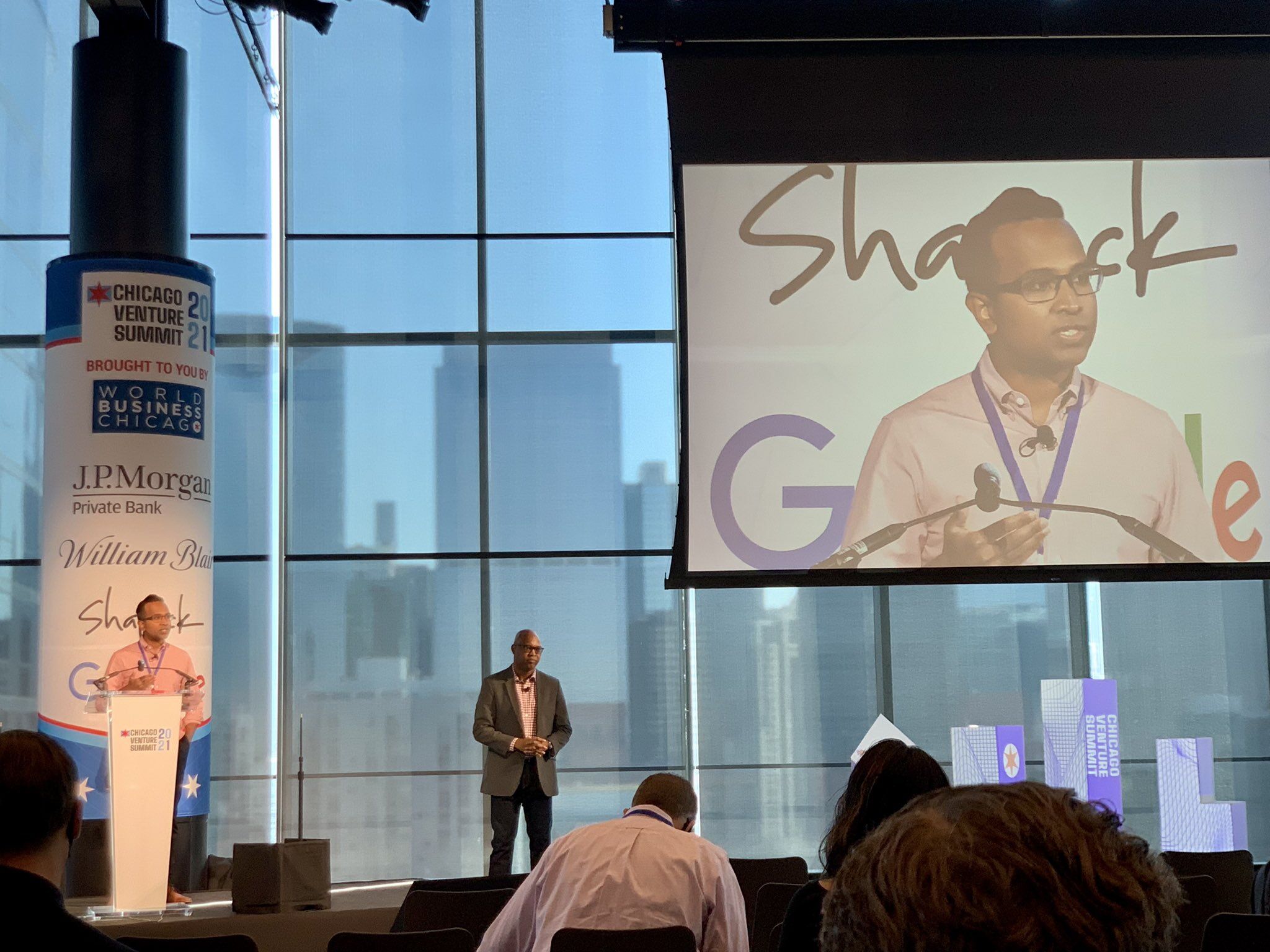
Samir Mirza, Executive Director, presenting the mission and values of Fifth Star Funds at the Chicago Venture Summit in September 2021. (Photo © FSF)
Stella Ashaolu: Yeah. Great question. Impact is so critical to the work that we’re doing at Fifth Star. We look at impact in a manner that is probably different than a traditional VC or similar type organization might look at impact. For us, our north star is really helping more Black founders access the capital and resources that they need to make it to the next stage and start and build and scale successful businesses. For us, impact is meaning more Black founders getting funded, more Black founders hiring more Black and minority folks onto teams and exposing them to tech. Impact for us is founders who wouldn’t have otherwise been able to start a business or go full-time on a startup, being able to do so. Impact is allowing founders who might have hit obstacles or roadblocks that don’t let them actually get to an MVP or beta or raise a seed round or a series A round get to those stages because of, one, the capital, but also the resources, access to partners and support that Fifth Star brings.
As we’re growing, we tell all of our founders we’re a startup ourselves. We’re constantly thinking about what is important to measure and what are the key metrics that we are going to be not only looking at internally, but sharing externally so that we can start to be the example for what this looks like. It’s really just giving more, the way one of our co-founders, Tim, likes to say, shots on goal for Black founders. I think there’s a lot of different metrics if you’re not looking at this from purely how many of these founders IPO, it’s how many Black founders who wouldn’t have otherwise been here are able to be here and able to do more and get the same access and opportunities that many of their White, male peers would have access to.
The impact that we want to have on the industry in general when it comes to venture is making the friends and family round—and I know you can’t see me, in quotations—“accessible” for all, where having access to high net worth friends or family does not give some folks a better opportunity or chance to start a business. We’re looking to allow Black founders—first here in Chicago but eventually across the nation—to be able to start and scale businesses regardless of whether they come from families that have those types of resources.
I think an example of that, one of our first investments was an amazing founder, Christine from Cyber Pop-up. She had built a product, had paying customers, but just didn’t have the opportunity to raise the capital that she needed. Fifth Star Funds being the first formal investment into her organization or into her company really gave her not only the support but the additional runway to go and now raise a real substantial seed round. That’s the type of impact that we want to have for companies across the board.
Dameon, let me ask you, in terms of how corporate social impact teams or corporates in general can channel power to Black entrepreneurs through investments or partnership, what do you see as the role of corporates in this space? Have you had any experience working with corporate partners as an entrepreneur?
Dameon Mason: I would say corporate impact on Black founders, one, it’s just a discovery, and just expanding the horizons into the Black community to know that there are a number of entrepreneurs and a number of talented people that are sitting here with great ideas, with great products, or with great services that can potentially enhance and improve people’s lives, and how that helps build our community as well. When you look at the totality of the Black community, our Black community is growing, it’s raising, it’s doing significantly better than it’s ever done. We understand that, but at the same time there’s a long way to go, and their impact—just investing or just paying more attention and looking into Black founders—could definitely help those Black founders in turn invest in their community as well.
You’re helping the community invest in the community, and that starts to circulate more and more. Then it also gives them more, even more exposure to other founders, other Black businesses that they could potentially partner and connect with and can grow great relationships with. I mean, their impact can be huge. I mean, we’re seeing more and more of it now, like we said before, but there’s still a long way to go. In order for more founders like myself to get more opportunities, it’s going to be huge that those corporate dollars—they have so much more that they can offer—if that can get to us and our community, we can definitely do so much more with it.
Stella Ashaolu: I would love to add on that too. Now I’m thinking about the question you asked me earlier in a different way, because I was thinking about it from the organizations that are donating and investing, but I think corporations have a huge opportunity to really change the landscape for entrepreneurship for Black founders in more than just investing in them from a dollar standpoint.
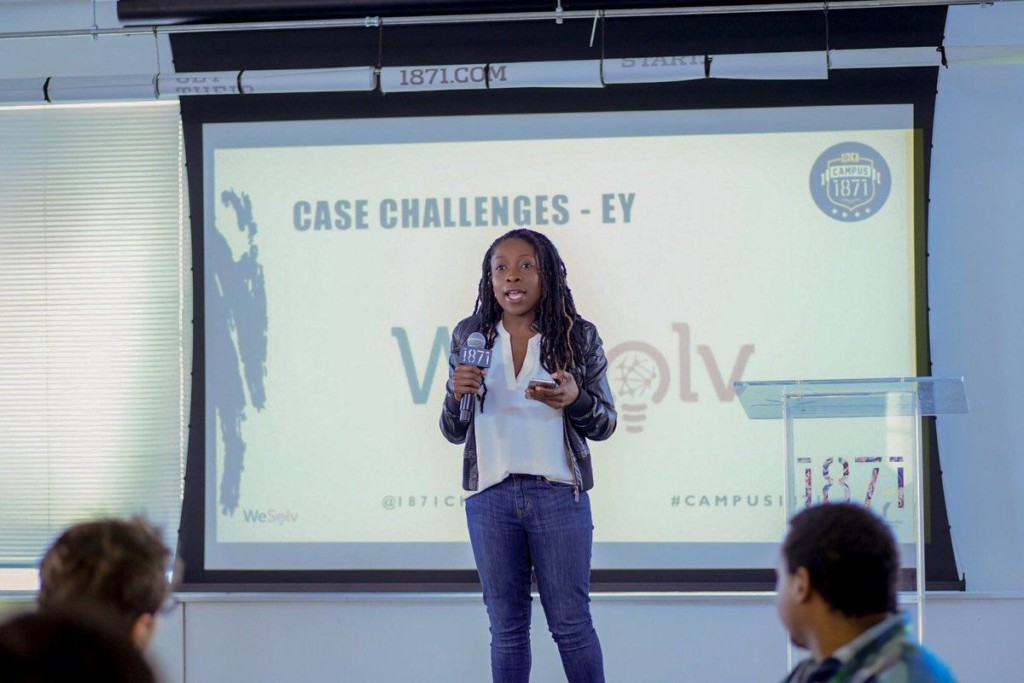
I think some of the most impactful support that I’ve received from corporations for my own business, for WeSolv, has been corporations giving me the “opportunity”—and I say giving me the opportunity in quotes because I’m providing a valuable service—but actually leveraging the solutions and tools that Black founders are creating, I think that can go so far. Because what ultimately building a startup is all about is getting customers, learning from those customers, iterating and making your product better. Without those corporate partners taking big bets and setting big contracts with Black founders, that makes it a really hard, uphill battle. I think there are organizations that have their procurement offices and all types of diversity initiatives, but we want to move beyond things like just food services or noncritical tools and solutions. Let’s start using Black founders’ software and tools and partnering with Black creators for mission-critical types of solutions. I think that’s when we’ll really see the needle move.
Fifth Star Funds has a donor advised fund at Tides Foundation. I, as an advisor on the corporate social impact team, actually have the incredible honor of working with the Fifth Star team, all of whom are rock stars. I would love to just hear from you a little bit about what it has meant to work with Tides as a partner and how Tides has helped you accelerate your mission.
Stella Ashaolu: Working with Tides has been critical, to say the least. I think in the middle of a pandemic when everything is shut down and we’re trying to start this nonprofit organization or this philanthropic fund, we didn’t really know where or how we were going to get this off the ground. Tides was really the game changer that made it possible. While it’s taking organizations a year-plus to get their 501 or 503c applications in, we were able to get up and going with Tides as our fiscal sponsor. Tides has also been very instrumental and supportive in just helping us think about the way we’re structuring this and really holding our hands, so to speak, throughout the whole process. That’s been something that has been a game changer for us in building out Fifth Star Funds.
Last question for you both, what is next? Dameon, can you share what’s next for Crtside?
Dameon Mason: Certainly. Next for us is our beta, which we’re super excited about, that it’s finally ready, and us being able to get athletes into the beta and for them to be able to test it and give us feedback on the product. Seeing how they interact with it and how that whole process goes. Building off of that, obviously we want to create more exposure for our company, so we have a couple of ideas from events and some things we’re about to do to roll more of the company out and get more people seeing the brand and noticing what the company is doing, and getting more athletes just more aware of the tools that we have and how they need to be taking the next step in brand building and connections and networking and how the new world of sports is moving forward. That’s exciting for us.
We’re ready just to get people in the app, get the process started of starting our event platform, and hopefully success comes. We’re ready to work, but we’re excited at this point in time just to get rolling and finally get through this process of just all the stuff of raising funds and putting together the product and talking on the phone and on Zoom with a million people all the time and going over everything. Now we can show the product, people can get in, and they can experience it for themselves. We’re excited. That’s what’s next for us.
Stella, a two-part question for you. What’s next broadly for Fifth Star Funds? What’s next for your partnership with Tides?
Stella Ashaolu: What’s next for Fifth Star Funds, that’s a big question. We’re at a point right now, we’ve raised a significant amount of capital, we have made about eight investments, and now we’re just looking to scale. We’re looking to hire some folks to come on and help make Fifth Star Funds more scalable. We’re looking to increase brand awareness and increase the number of investments that we’re making. We’re also still fundraising, so we will continue raising capital to fund and support more founders. But really right now we’re focused on increasing our scalability and our ability to support founders in the way that we know is critical to advancing our mission. As far as working with Tides, in order to do that we are actually transitioning our partnership so that we can actually use the contributions from our unlimited partners to support those types of efforts so we could start to use those for operational expenses. We thought this was the best approach, given where we are and our unique needs. Really excited to broaden and expand the partnership with Tides.
Awesome. I and we are honored to be working with Fifth Star Funds and we’ll be cheering you guys on. I’m just excited to see where you all go. Thanks so much for joining us today, guys.
Stella Ashaolu: Thank you.
Dameon Mason: Thank you. Appreciate the opportunity.

Healthy Individuals & Communities
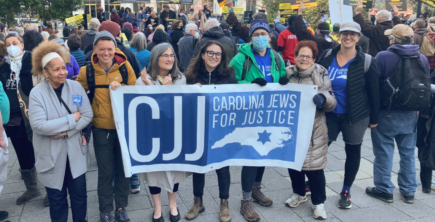
Our Community

Philanthropy

Read the stories and hear the voices of social change leaders fighting for justice.